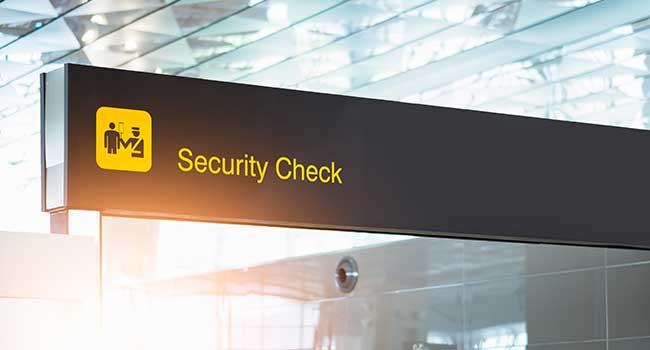
TSA Announces Plan for Facial Recognition at Security Checkpoints
The TSA Biometrics Roadmap focuses on four main goals: 1. Partnering with U.S. Customs and Border Protection on biometrics for international travelers, 2. Using biometrics provided by TSA PreCheck members to enhance the travel experience, 3. Expanding biometrics to additional domestic travelers and 4. Developing the infrastructure for biometric technology.
- By Jessica Davis
- Oct 17, 2018
The Transportation Security Administration announced Monday its plan to expand the use of biometrics technology at airport security checkpoints. The TSA Biometrics Roadmap for Aviation Security and the Passenger Experience outlines TSA’s four main goals for modernizing aviation passenger identity verification.
Currently, TSA and its airline partners check identities at airport security checkpoints with an officer and inspection of travel documents like photo identification. The agency hopes to simplify the passenger experience and increase efficiency and security by using biometric technology like facial recognition and fingerprints. In order to do this, the TSA must build out the infrastructure to host and check biometric data against verified databases at security checkpoints.
“With the threat to aviation evolving every day, developing the next generation of security technology with our industry partners is critically important,” TSA Administrator David Pekoske said. “By expanding our use of biometrics, TSA secures its position as a global leader in aviation security and advances global transportation security standards.”
The TSA Biometrics Roadmap focuses on four main goals: 1. Partnering with U.S. Customs and Border Protection on biometrics for international travelers, 2. Using biometrics provided by TSA PreCheck members to enhance the travel experience, 3. Expanding biometrics to additional domestic travelers and 4. Developing the infrastructure for biometric technology.
The agency has already begun implementing some use of biometric facial recognition technology for passengers at some airports, such as Los Angeles International Airport and John F. Kennedy International Airport. Later this month, TSA will partner with Hartsfield-Jackson Atlanta International Airport, Delta Air Lines and CBP to launch its first biometric terminal, which will use facial recognition to automate processes such as self-service bag drop, ID verification and boarding.
“By testing biometrics technology in the airport environment, TSA hopes to increase security effectiveness and stay ahead of the threat,” Pekoske said. “We will continue to leverage our partnerships to deliver enhanced capabilities to checkpoint lanes throughout the country.”
About the Author
Jessica Davis is the Associate Content Editor for 1105 Media.